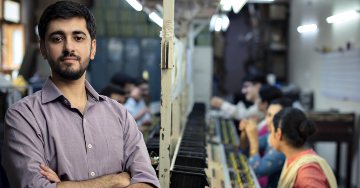Recognizing that lack of awareness is a major factor for financial exclusion, RBI has asked the SLBC convener to set up a credit-counselling center in one district as a pilot and extend it to all other districts in due course. RBI has come out with a Model Scheme on FLCCs and later has advised banks to set up as many FLCCs in order to achieve one centre per block.
FLCCs should not act as investment advice / marketing centers for products of any particular bank. To start with, Banks may set up Trusts/Societies for running FLCCs, fully funded by the Bank. The counselling centers should maintain arm's length relationship with the parent bank. While FLCCs may be started in rural, semi urban, urban and metropolitan areas, banks may adopt a segmented approach specific to different categories of borrowers, rather than broad-based generalized one.
In consonance with RBI directives, we have established a Trust namely "Federal Ashwas Trust". The Trust was formally inaugurated by Dr. K C Chakrabarty, Deputy Governor, Reserve Bank of India. The main objective of Federal Ashwas Trust is the establishment and running of "Federal Ashwas Financial Literacy Centers" (FAFLC) for providing Financial Education to the public.
The Trust is managed by seasoned bankers and pioneers in agriculture who have held key positions during the course of their prestigious careers. The current trustees are Shri. John Kurien (Retired NABARD Chief General Manager), Smt.Indira Devi (Director (Agri. Expert) in the KSFWB and was the professor of Agricultural Economics and Director of Research at the Kerala Agricultural University), Smt. Suma Varma (retired Principal Chief General Manager in charge of Cooperative Bank Regulation, RBI). The centres are headed by counsellors who are picked from a pool of retired bank officers and MSW qualified professionals.
List of Financial Literacy Centres
Credit counselling is being provided for existing as well as prospective customers of all banks at all the centers by the counsellors, who are retired bank employees. The counsellors visit branches of all banks in their area and spread the message of availability of Federal Ashwas Financial Literacy Centre. Counsellors are also attending Block and District level Banker's Committee meetings to request Banks and Government Departments to advise the public to avail the services and facilities offered by FAFLCs. The services of FAFLCs are being utilized well by the public, especially by students and parents intending to avail educational loans.
Frequently Asked Questions on FAFLCs








